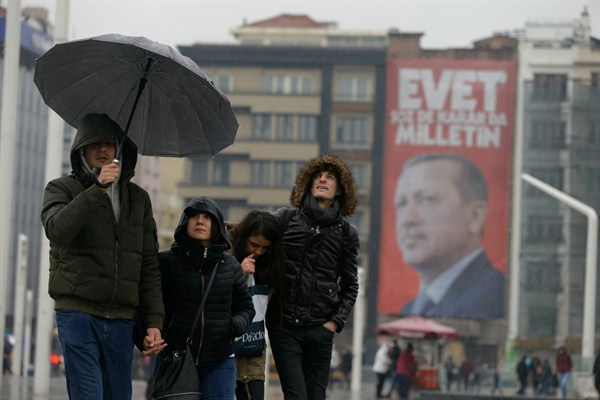The row between Turkey and the Netherlands over a banned political rally by Turkish immigrants in Rotterdam has now escalated into a diplomatic crisis that threatens Turkey’s relations with the European Union. Like Germany had done days before, the Netherlands cited a threat to public order as the reason for banning the rally last week. The demonstration had been called to show support for Turkish constitutional reforms that would create an executive presidency, strengthening President Recep Tayyip Erdogan’s increasingly authoritarian grip on power.
In addition to banning the gathering, Dutch authorities turned back the airplane carrying Turkey’s foreign minister to the rally and expelled another Turkish minister who had already entered the country. Subsequent protests by Turkish immigrants in Rotterdam turned violent. Erdogan’s government has responded with reprisals that include an entry ban on Dutch diplomats and withdrawal from high-level political discussions. With his penchant for diplomatic understatement, Erdogan leveled charges of neo-Nazism at the Dutch, echoing his earlier attacks against Germany.
The spat is a reminder of how problematic a partner Turkey has become for Europe and NATO, but it also reveals the potential volatility of a historical period dominated by the rise of populist politics.

